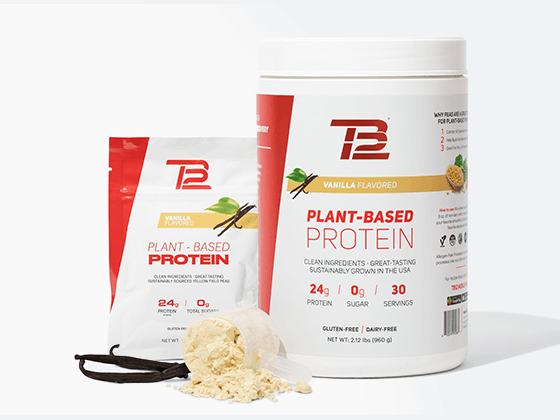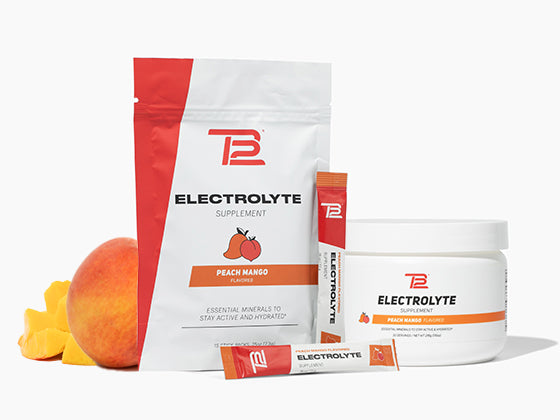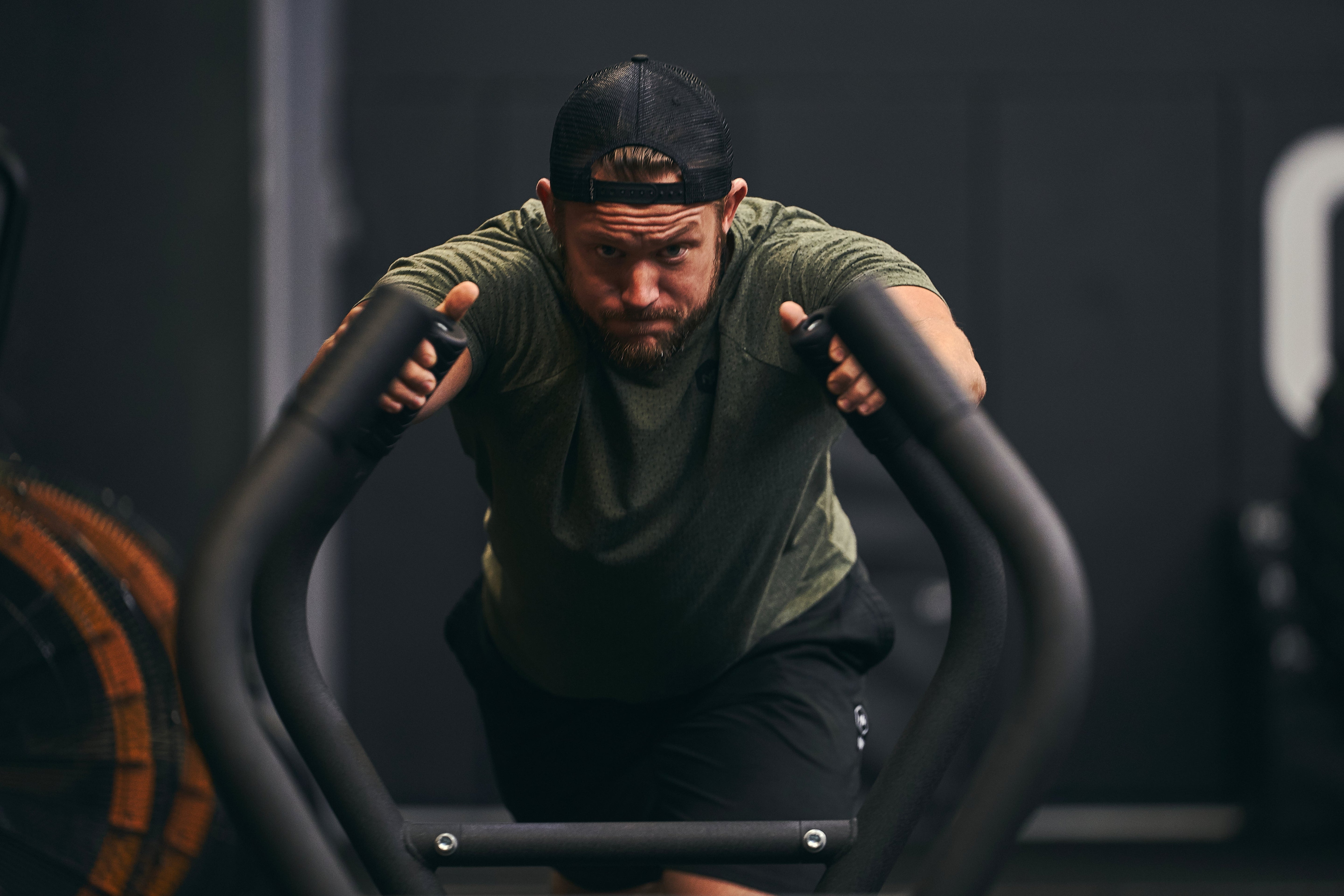Going plant-based takes discipline, and not just because of the limited menu.
The vegetarian diet presents some holes in its nutrient profile, and for optimum performance to be maintained, these holes must be filled.
Research has shown that vegetarians are at higher risk of deficiencies in vitamin B12, iron, vitamin D, iodine, zinc, and omega-3 fatty acids.
Each of these nutrients plays a crucial role in performance, recovery, and long-term health.
This isn’t about hype or trends, it’s about physiology. These nutrients are non-negotiables.
Let’s break down each of these nutrients, getting into why they are important and how to make sure these dietary gaps are filled for complete support.
Vitamin B12:
Why it matters: Vitamin B12 is critical for red blood cell formation, DNA synthesis, and nervous system health. Deficiency can lead to decreased energy levels, hindered neurological communications, and suboptimal red blood cell counts (source).
The challenge: B12 is found almost exclusively in animal products (source). Without supplementation, it is going to be very hard to avoid some sort of deficiency.
Optimization: Supplementation is essential. Fortified foods (nutritional yeast, plant milks, cereals) can help, but supplements should be the foundation.
Iron:
Why it matters: Iron transports oxygen through hemoglobin. Low levels mean low energy, impaired recovery, and poor endurance.
The challenge: Plants provide only non-heme iron, which is less bioavailable than the heme iron in meat (source). Vegetarians consistently show lower iron stores, with women being especially vulnerable (source).
Optimization: Eat iron-rich plant foods like lentils, beans, tofu, pumpkin seeds, and fortified cereals. Pair with vitamin C sources (citrus, bell peppers) to help absorption (source). For high-risk groups, supplementation may be required.
Vitamin D:
Why it matters: Vitamin D regulates calcium absorption, supports immune function, and promotes a variety of other physiological processes. Deficiency links to bone stress (source), low energy (source), and poor recovery (source).
The challenge: Without fish, eggs, or fortified dairy, intake is lower in vegetarians. Add limited sun exposure, especially in northern climates, and deficiency is common.
Optimization: Supplementation is key. Fortified plant milks can help, but rarely close the gap alone.
Iodine:
Why it matters: Iodine fuels thyroid hormones, which drive metabolism, energy, and growth; deficiency means sluggishness, impaired cognition, and thyroid dysfunction (source).
The challenge: Vegetarians often consume less iodine, especially if they don’t use iodized salt or eat seaweed.
Optimization: Use iodized salt consistently or supplement. Be cautious with seaweed. Iodine levels vary widely.
Zinc:
Why it matters: Zinc supports immune function, wound healing, and muscle repair (source).
The challenge: Zinc in plant foods is less bioavailable, and high phytate intake (from whole grains and legumes) further reduces absorption (source).
Optimization: Focus on nuts, seeds, beans, and whole grains. Consider supplementation if bloodwork shows low levels or if training demands are high.
Omega-3 Fatty Acids:
Why it matters: EPA and DHA help reduce inflammation, promote brain health and performance, and support cardiovascular function (source, source).
The challenge: Fish and eggs are the primary sources. Vegetarians often rely on ALA (from flax, chia, walnuts), which converts poorly to EPA/DHA.
Optimization: Use algae-based EPA/DHA supplements to directly meet needs. Combine it with ALA-rich foods to cover the base.
Vegetarian diets can deliver high performance, but only with precision. This isn’t about guessing. It’s about testing, planning, and supplementing where needed.
-
Test your bloodwork at least annually (if possible).
-
Build a foundation with fortified foods and a balanced plant-based plate.
-
Supplement strategically where diet falls short.
TB12 nutrition is about consistency and intention. Approaching the vegetarian diet, or any dietary practice, with the same mindset ensures that you’re not just surviving, you’re thriving.
TB12 recognizes that good seasonal vegetarian dishes can be hard to come by. As the weather starts to change, this Sweet Potato and Black Bean Chilli perfectly fits into the menu.
Sweet Potato and Black Bean Chili
Servings: ~6
Ingredients:
-
1 tbsp olive oil
-
1 sweet potato, peeled and diced
-
1 onion, diced
-
1 red bell pepper, diced
-
6 garlic cloves, minced
-
1 28-oz can, crushed tomatoes
-
2 15-oz cans, black beans, rinsed and drained
-
2 tbsp tomato paste
-
1.5 tbsp chili powder
-
1 tbsp ground cumin
-
0.5 tsp kosher salt, to taste
-
0.5 tsp ground black pepper, to taste
-
0.5 tbsp hot honey, to taste
-
1 orange, zest and juice
Optional Toppings:
-
Avocado
-
Greek yogurt (Extra Protein)
-
Cilantro
-
Jalapeños
-
Tortilla chips
-
Cheese of your choice
Directions:
-
Heat olive oil in a large pot. Add sweet potato, onion, and bell pepper, and cook on medium-high heat for 10 minutes.
-
Add garlic, tomato paste, chili powder, cumin, salt, and pepper. Stir.
-
Add tomatoes, black beans, honey, orange zest and juice, plus 2 cups of water to the pot and bring to a simmer. Cover pot and cook over low heat for 30 minutes, or until sweet potatoes are tender.
-
Add more seasoning to taste. Divide into bowls and garnish with selected toppings.




